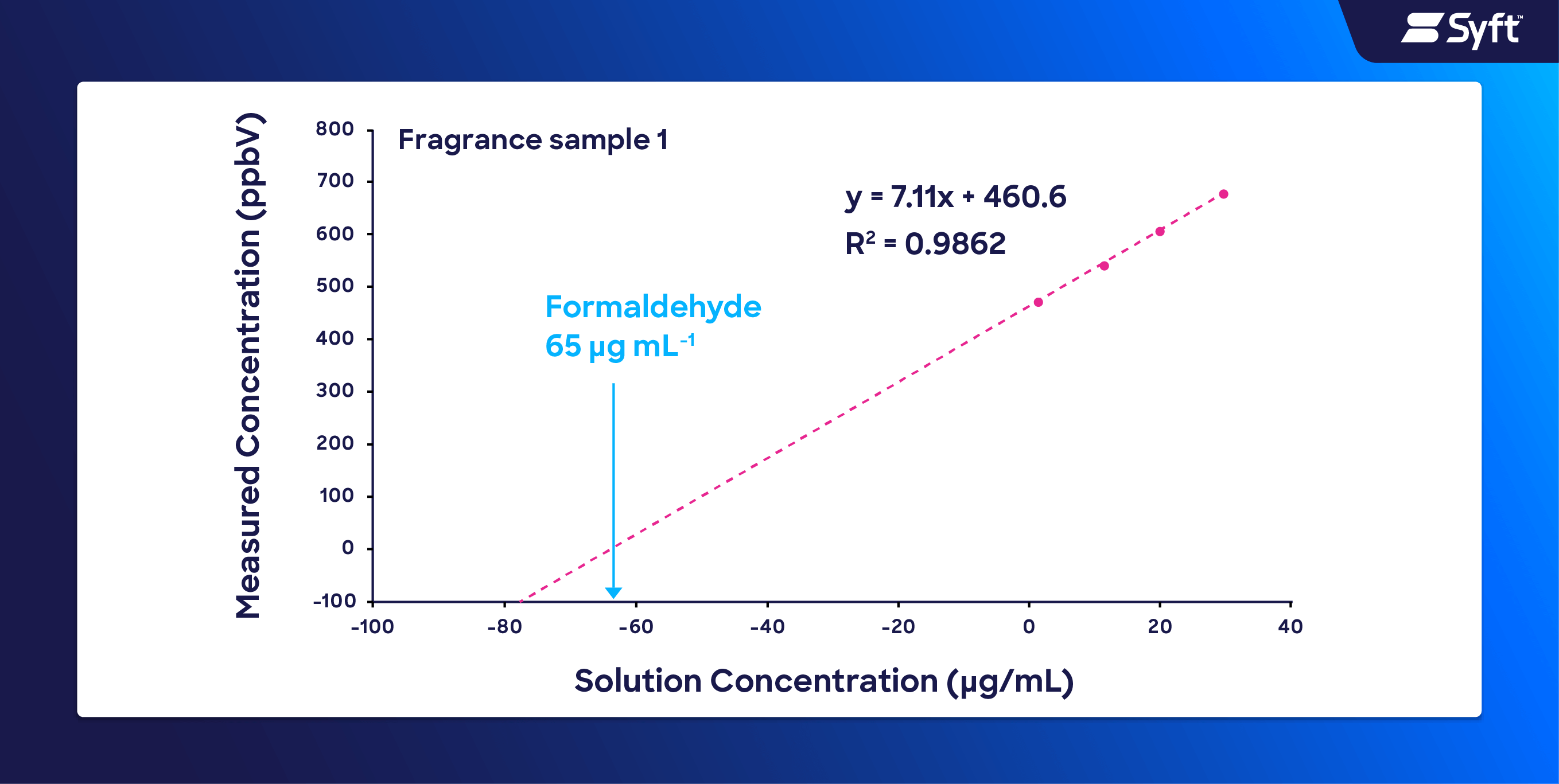
Volatile compounds can be harmful to human health if present in consumer or drug products at levels that represent a toxicological risk. Formaldehyde is of particular concern, because it is a known human carcinogen (e.g., US NTP (2011), European Commission (2018))) and can arise from impurities in, or degradation of, ingredients, or from residual impurities in packaging materials. Formaldehyde is, however, challenging to analyze using conventional chromatographic techniques (both gas and liquid chromatography; GC and LC) due to its high polarity, high reactivity, and the need for sample preconcentration and solvent extraction. Alternatively, selected ion flow tube mass spectrometry (SIFT-MS) can analyze formaldehyde directly in headspace at toxicologically relevant concentrations.
This application note applies SIFT-MS to the analysis of formaldehyde in three fragrance mixes. These mixes have different compositions, but all pose a challenge to SIFT-MS as used conventionally because the total concentration of matrix volatile organic compounds (VOCs) exceeds the dynamic range of the instrument (Smith et al. (2023), Langford (2023)). This complication arises due to the direct, chromatography-free analysis achieved using SIFT-MS, which means that analytes and other matrix volatiles pass through the instrument ionization region simultaneously.





